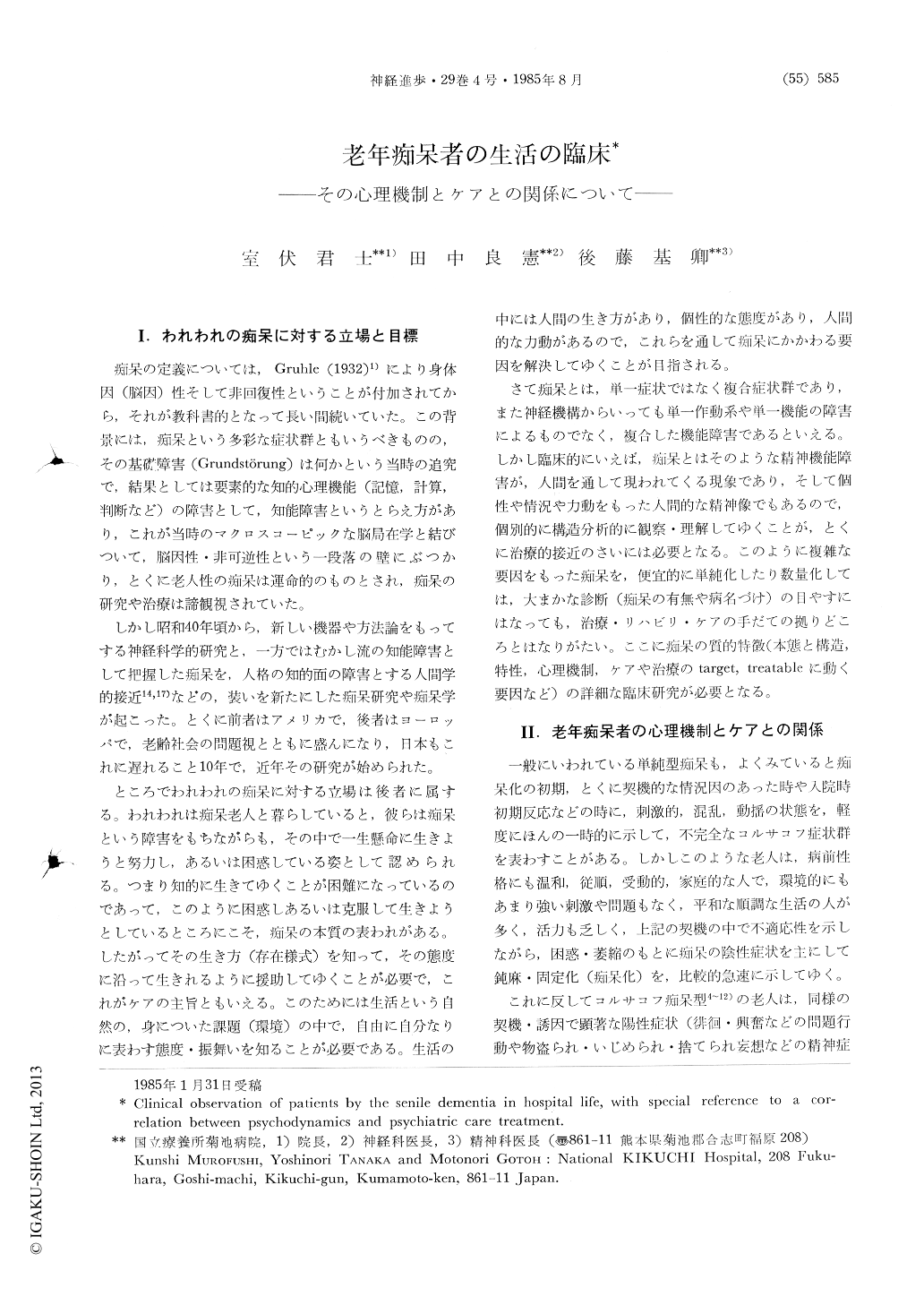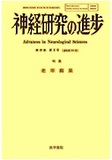Japanese
English
- 有料閲覧
- Abstract 文献概要
- 1ページ目 Look Inside
I.われわれの痴呆に対する立場と目標
痴呆の定義については,Gruhle(1932)1)により身体因(脳因)性そして非回復性ということが付加されてから,それが教科書的となって長い間続いていた。この背景には,痴呆という多彩な症状群ともいうべきものの,その基礎障害(Grundstörung)は何かという当時の追究で,結果としては要素的な知的心理機能(記憶,計算,判断など)の障害として,知能障害というとらえ方があり,これが当時のマクロスコーピックな脳局在学と結びついて,脳因性・非可逆性という一段落の壁にぶつかり,とくに老人性の痴呆は運命的のものとされ,痴呆の研究や治療は諦観視されていた。
しかし昭和40年頃から,新しい機器や方法論をもってする神経科学的研究と,一方ではむかし流の知能障害として把握した痴呆を,人格の知的面の障害とする人間学的接近14,17)などの,装いを新たにした痴呆研究や痴呆学が起こった。とくに前者はアメリカで,後者はヨーロッパで,老齢社会の問題視とともに盛んになり,日本もこれに遅れること10年で,近年その研究が始められた。
Abstract
A group of the senile dementia showing Kor-sakow's syndrome in the foreground is called the Korsakow-dementia type. In this patient, it is important that this syndrome has not merely memory disturbance, but also disorder of intel-lectual personality and psychical attitude. Several characteristics of the psychodynamic mechanism explain, bringing into relation to the discipline of the care treatment.
1. 《jamais ou déjà connu》-attempt to make a person and place for safe living, become acquainted with each other.

Copyright © 1985, Igaku-Shoin Ltd. All rights reserved.


